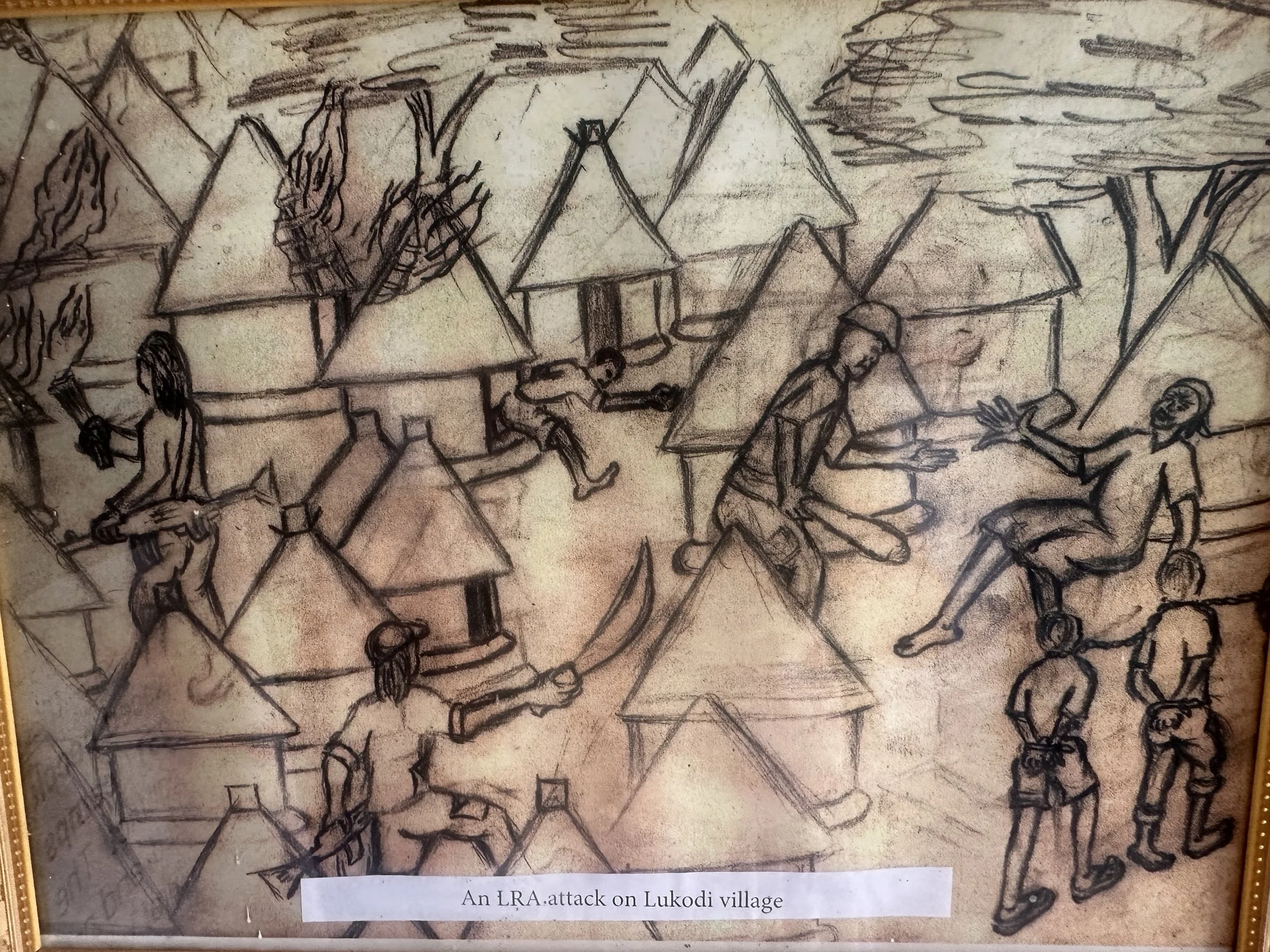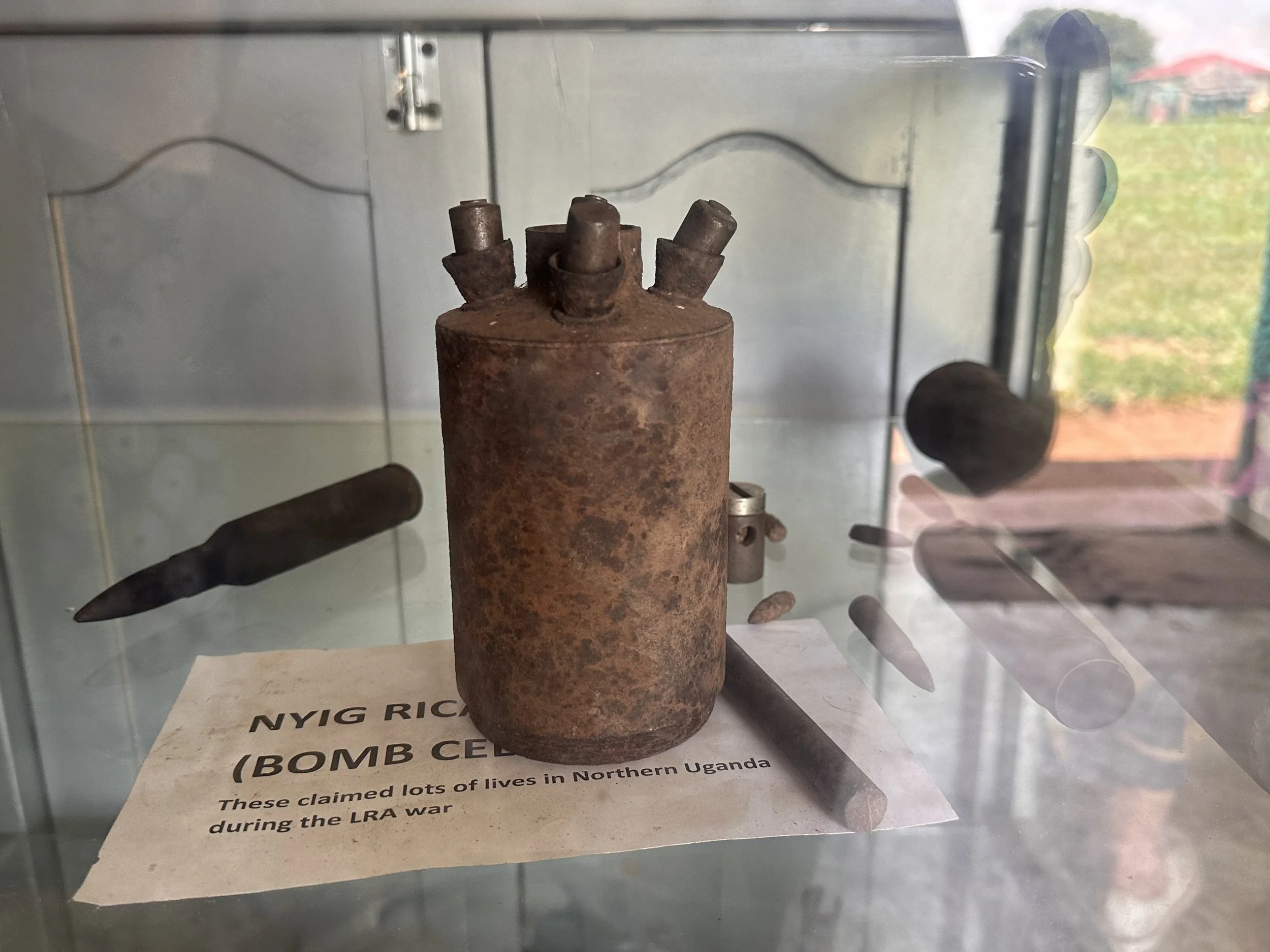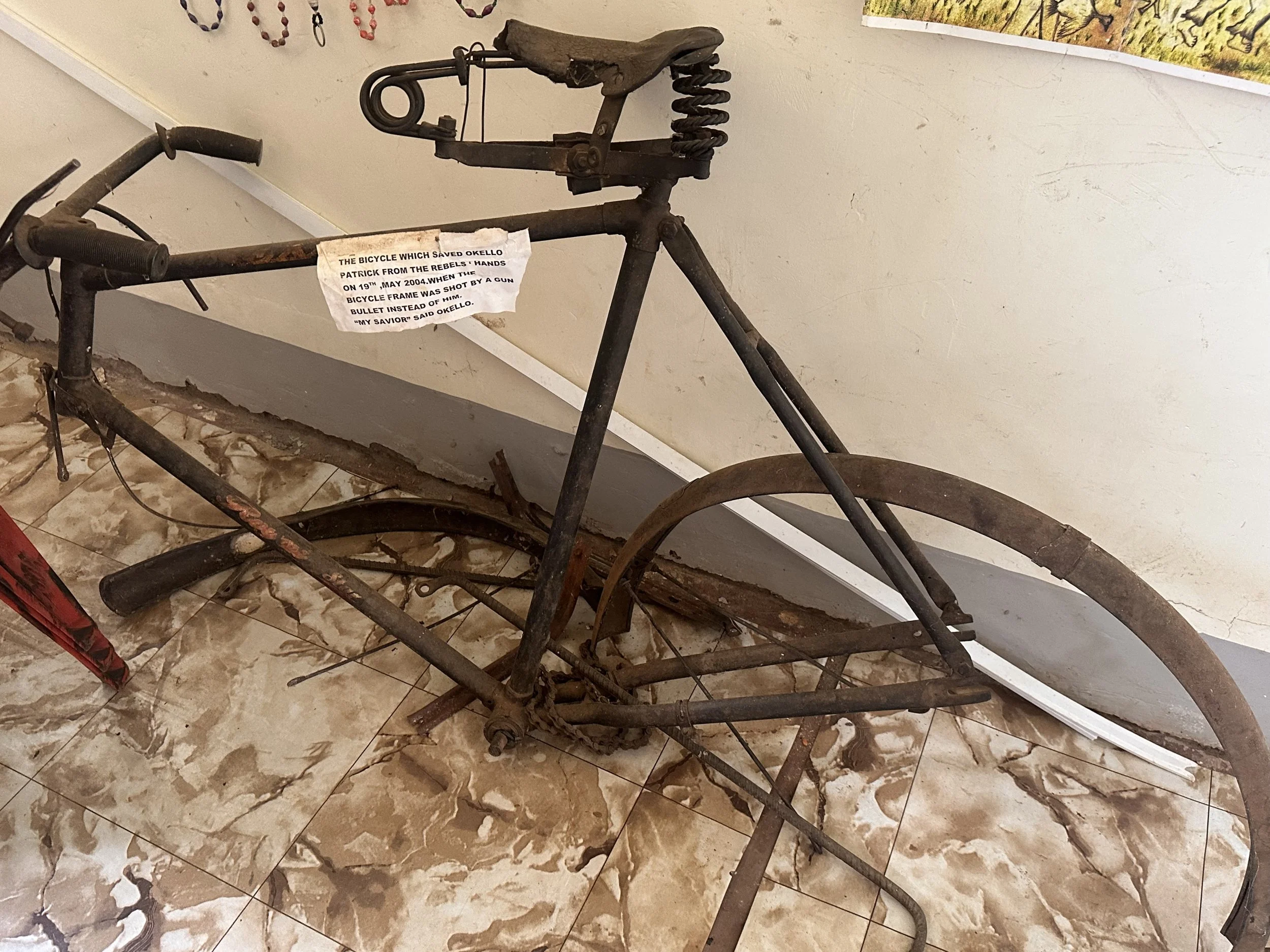Remembering the LRA at Lukodi Memorial Center
June 21, 2024
REMEMBERING THE LRA AT LUKODI MEMORIAL CENTER
Northern Uganda still feels the effects of a brutal conflict waged by the Lord's Resistance Army (LRA). Led by the notorious Joseph Kony, this rebel group terrorized the region for over two decades. While the LRA's reign of terror has subsided, the memories and trauma linger.
We visited the Lukodi Memorial Center and heard firsthand accounts of the horrors inflicted by these rebels.
The LRA emerged in the late 1980s, claiming to fight for the rights of the Acholi people. However, their tactics quickly devolved into extreme violence. They began to systematically target schools, churches, villages, and internally displaced camps: kidnappings, sexual violence, mass abduction, and forced enrolment of child soldiers were daily occurrences.
The population fled to safer places, such as towns and missions or government-created “protected camps.” Over the years, as many as 30,000 children between the ages of seven and fourteen in Northern Ugandan are estimated to have been abducted, including the abduction of children who were forced to become soldiers. The LRA destabilized Northern Uganda, leaving communities devastated and families torn apart.
On our visit to the Lukodi Memorial Center, we learned about one of the deadliest attacks at the hands of the LRA. On May 19, 2004, the LRA launched a horrific attack on the village of Lukodi. Our guide, Wilfred, a survivor of the massacre, recounted the harrowing events of that day.
Over 200 rebels descended upon the village, vastly outnumbering the small group of guards stationed there. In a matter of hours, over 72 people were killed, and countless others were abducted. Wilfred shared stories of unimaginable cruelty – women raped, children hidden in the bush, and elders targeted for their wisdom. Elders documented the Acholi culture through stories and traditions. By killing the elders of the community, they attempted to destroy the Acholi culture.
At the height of the conflict, about 1.2 million people in Northern Uganda were displaced, and up to 60,000 people lived in dramatic conditions due to overcrowding and lack of essential services and survived on assistance offered by humanitarian organizations.
Lacor Hospital was not immune to this war.
From 1996, almost 2,000 people settled permanently within the hospital compound, in large tents the hospital set up. In addition, between 1996 and 2006, thousands of “night commuters,” primarily children and women, would enter the hospital compound every evening between 6 pm and 8 pm, after having walked up to two hours, to avoid rebel attacks and kidnapping at night. They would settle in the corridors, verandahs, buildings under construction, rooms not used for hospital activities at night, and even in the courtyards. The following day, they would leave the hospital and return to their homes, only to start the journey again in the evening.
The Lukodi Memorial Center serves as a reminder of the LRA's reign of terror and the resilience of the Acholi people. It is a place of remembrance, mourning, and education. By sharing their stories, survivors like Wilfred are ensuring that the atrocities of the LRA are not forgotten and that future generations can learn from the past.
Okello Patrick was riding this bicycle when the rebels attacked that fateful day. Thankfully the bullet hit his bike and not him. The bike is currently on display at the Memorial Center.









